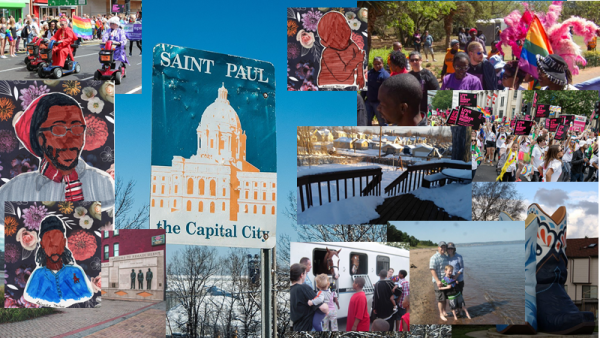
Welcome Back! This week we bring you three new installments in our Wonderful/Wretched series on racial dynamics in the Twin Cities. We also share two #TSPClassics highlighting LGBTQ issues: one focuses on partnering in rural communities, while the other explores the rise in acceptance of same-sex sexuality worldwide.
Special Features:
“Wonderful/Wretched Memories of Racial Dynamics in the Twin Cities, Minnesota” by Walter R. Jacobs. In this series, social scientists with ties to the Twin Cities share their stories and reflections about experiencing race in the “Land of 10,000 Lakes.”
- “The Sound of the Police” by Jerry Shannon and Sarah Shannon
- “Minnesota’s First Posthumous Pardon” by Garrick Percival
- “Black Life and Death in Minnesota” by Wendy Thompson Taiwo
If you are a social scientist who also has ties to the Twin Cities of Minneapolis and St. Paul but now lives elsewhere, we’d love to include your stories as a component of this collective action. Stories from White social scientists as well as from social scientists of color are welcome, as we aspire to document the full range of experiences of the racial dynamics of the Twin Cities. Please send your reflections to Walt Jacobs at walt.jacobs@sjsu.edu.
From Our Partners:
Council on Contemporary Families:
“Nell Frizzell on Her Forthcoming Book “The Panic Years” by Kimberly McErlean.
Sociological Images:
“The Hidden Cost of Your New Wardrobe” by Graham Nielsen.
“Racism & Hate Crimes in a Pandemic” by Kayla Preston.
From Our Community Pages:
- The Center for Holocaust and Genocide Studies suggests that we’d be better off to give back some of the gifts passed down by our nation’s Founding Fathers.
#TSPClassics Collection:
We bring back “Queer in the Country,” a TROT by Sarah Catherine Billups which rounds up research on the identity formation, visibility, and health outcomes of LGBTQ individuals in rural areas.
We also share a Special Feature by Louisa L. Roberts, called “Attitudes toward Gay and Lesbian People Have Grown More Accepting around the World. Why? And What Obstacles Remain?.” Roberts examines changing global attitudes towards same-sex sexuality.

Comments